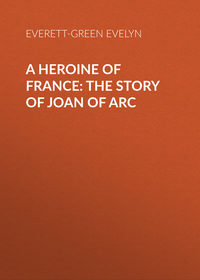 полная версия
полная версияFallen Fortunes
They both rode on with thoughtful faces after this brief interlude. Grey was turning over a dozen different schemes in his mind; but all were vague and chimerical. Now and again he looked at an amethyst ring upon his finger, and it came over him that the shortest cut to fortune might be to present himself as a suppliant for favour at the feet of the great Duchess of Marlborough, who was said to rule the Queen with a rod of iron, and whose known devotion to her husband would be certain to raise high in her favour any person who had rendered him so timely a service as that which Grey had been able to offer on the day of Ramillies.
But then, again, it seemed to Grey that to claim reward for that chance service, which had cost him nothing, was little better than playing the beggar or the sycophant. There was in his nature a strong strain of chivalrous romance – of love of adventure for its own sake, without thought of reward or favour. That encounter with the great Duke, the interview which had followed, the consciousness that he had done his country a notable service that day – all these things were very sweet to him, forming an episode pleasant to look back upon. If he now presented himself on the strength of it as a petitioner for place or favour, at once the whole thing would be vulgarized – he would be lowered in his own estimation, sinking to the level of one of the crowd of greedy flatterers and place-hunters who thronged the antechambers of the rich and great, and fawned upon them for the crumbs of patronage which they were able to dispense as the price of this homage.
Grey had seen this sort of thing at foreign courts, and his soul had sickened at it. Doubtless, in this great world of London it was the same. As a baronet, a young man of parts, with an attractive person, and, at present, a well-filled purse, he might not improbably please the fancy of the Duchess, and obtain some post in her household or about the Court that would give him a chance at least to rise. But the more he thought of this the less he liked the idea, and at last he flung it from him in scorn.
"I would sooner live in Grub Street, and drive a quill!" he said half aloud. "I could praise a hero with my pen, but I cannot fawn and flatter with my lips. And methinks I am not fit for the life of a place-man: I have been too long mine own master. Surely there are ways by which a man may rise in the world without abasing himself in his own esteem first. I will go to London, and look about me with open eyes. There are the world of politics, the world of art and literature, and the theatre of war, if other spheres should fail. Surely there must be a place for me somewhere; but I will not choose the latter if I can help it. I fear not death on mine own account; but I desire to live, and to grow rich, that I may square matters with yonder villain, and avenge upon him my father's untimely death!"
For that his father had been in some sort done to death by his false kinsman, Grey did not now doubt, though whether he would be able to bring that crime home to him later, he could not at present surmise. Much might be possible to a man with friends in high places; but these would have to be found and won ere any step could be taken.
Grey often felt within himself the stirrings of ambition. He had shown promise of something akin to genius in his Oxford days, and there had not been lacking those among his companions and tutors who had declared that he could win fame and fortune through academic laurels. But Grey had then turned a deaf ear to such propositions. He desired to travel and see the world, and he had done this with much zest. But the muse within had not been altogether silent, and he had many times covered sheets of paper with flowing stanzas or stately sonnets, which bore witness to the fire that burned within. His pencil, too, was not without cunning; and his study of the treasures of many an art gallery, many a foreign church, had given him knowledge and culture beyond what the average gallant of the day could boast. The double strand in his nature was very marked – a reckless love of adventure, and a delicate appreciation of the beautiful. Often he longed after the days of the early troubadours, when the two walked hand in hand. He pondered these matters in his busy brain as he rode onward in the sunny brightness of the June morning, and found it in his heart to wish that he was not thus possessed by such conflicting passions. He felt he would have had a better chance of success had his bent in any one direction been more decided.
They pulled up at the quaint old inn at Edgeware, and rode into the courtyard, where lackeys and hostlers were making merry together, and where some handsome horses were being groomed down, prior to being put into the cumbersome but very handsome coach that stood beneath the protecting galleries which ran round the court. The lackeys wore a livery of snuff-coloured cloth, with a quantity of gold lace about it. The panels of the coach were snuff-coloured, and there was much heavy gilding about it, which was being polished with great zeal by the servants of the inn. It was plainly the equipage of some person of quality, and had evidently put up there for the night, but was likely to be wanted shortly for the road again.
Grey dismounted, and leaving Dick in charge of the horses, made his way in through the low-browed entrance, along a sanded passage, and so to the public room, the door of which stood open. As a boy he had known this house, and it still seemed familiar to him, though it had changed hands since he had been there last, and his face was not known to mine host.
"Your pardon, sir," spoke this functionary, bustling forward on his entrance, "but this room is bespoke for my Lord Sandford. If you are wanting a meal, it shall be quickly served elsewhere – "
But at that moment a rollicking voice from the foot of the adjacent staircase broke in upon the excuses of the host.
"Gadzooks, man, but it shall be nothing of the sort. Set a cover for the gentleman at my table. Gosh! is a man so enamoured of his own company that he must needs drive all the world away? – Come in, sir, come in, and take pot-luck with me. – Landlord, see you give us of your best, or I'll spit you on your own jack! I've a great thirst on me, mind you; and let the dishes be done to a turn. – Take a seat in the window, sir; the air blows fresh and pleasant, but it will be infernally hot ere noon. I must be off and away in good time. In London streets you can find shade; but these country roads – hang them all! – get like What's-his-name's fiery furnace seven times heated if they don't chance to run through forest land!"
The speaker was a young man of perhaps seven-and-twenty, though reckless dissipation had traced lines in his face which should not so early have been there. He was dressed according to the most extravagant fashion of the day, with an immense curled wig, that hung half-way down his back; a coat of velvet, richly laced, the sleeves so short that the spotless lawn and ruffles of the shirt showed half-way up the forearm; a wonderful embroidered vest, knee breeches of satin equally gorgeous, and silk stockings elaborately gartered below the knee with bands of gold lace. He carried a fashionably cocked hat beneath his arm, with a gold-headed cane; and a small muff was suspended from his neck by gold chains. The muff held a golden snuff-box, with a picture on the lid which modesty would refuse to describe; and the young spark took snuff and interlarded his talk with the fashionable oaths of the day as a matter of course.
He looked curiously at Grey when they had taken their seats; for the traveller, though dressed with exceeding simplicity, and wearing his own hair in loose, natural curls, just framing his face and touching his shoulders, was so evidently a man of culture and of gentle blood that the dandy was both impressed and perplexed by him. For high-bred look and instinctive nobility of bearing Lord Sandford could not hold a candle to Grey Dumaresq.
"I saw you ride into the yard just now. Fine horse that of yours, sir – very fine horse! If he's ever for sale, mind you let me know of him. Lord Sandford – your very humble servant – always to be heard of at Will's Coffee House or the Mohawk Club. Seem to remember your face; but dash me if I can give it a name. Awful memory for names I have – know too many fellows, I suppose. Not that there are so many like you, either; but hang me, I must have met you somewhere before."
Grey had caught the fleeting memory, and answered at once, —
"We were at Oxford together, my lord. Not at the same college, though; but we have met, doubtless. My name is Grey Dumaresq – "
"Why, to be sure. Gad! but that's strange! Thought I wasn't wrong about a face! I heard you spout forth a poem once. Lord, it was fine, though I didn't understand one word in ten! Latin or Greek – rabbit me if I know which! And I knew your father, too; met him in London now and again. He's not been seen anywhere these eight or nine months."
"My father died last Christmas," spoke Grey gravely. "I did not know it myself, being abroad." And led on by Lord Sandford's questions, which, if not very delicately put, showed a real interest in the subject, Grey gave him a bare outline of his own life since quitting Oxford, and of the position in which he now found himself.
"Oddsfish, man – as our merry monarch of happy memory used to say – but yours is a curious tale. The ladies will rave over the romance of it – coupled with that face of yours. Oh, never say die, man! You've the world before you. What more do you ask than such a face, such a story, and a few hundred pounds in your pocket? Why, with decent luck, those hundreds ought to make thousands in a very short time. You trust yourself to me, my young friend. I know my London. I know the ropes. I will show you how fortunes are made in a night; and you shall be the pet of the ladies and the envy of the beaux before another month has passed. We will find you an heiress for a wife, and – heigh, presto! – the thing is done."
Grey started, and made a gesture as of repulsion, whereat Lord Sandford roared with laughter; and there was something so heartwhole and infectious in his laugh that Grey found himself joining in almost without knowing it. The man had a strong personality, that was not to be doubted, and at this moment Grey felt himself singularly lonely, singularly perplexed about his own immediate future. He did not know London. He had scarcely set foot within its precincts, save on the occasion when he went to bid his father farewell, and when it seemed to him that he stepped into Pandemonium itself. Since then he had visited many foreign capitals, and had accustomed himself to the life there to some extent; but only to the life of a traveller – an onlooker. Now he felt that something more lay before him – that it was as a citizen and a unit in the great hive that he must go. And how to steer his bark through the shoals and quicksands of the new life, he had very small idea. To win fame and fortune was his wish; but how were these good things to be achieved? Never had it entered his head to look upon marriage as a way of gaining either.
"Zounds, man, don't look like that! Better men than you or I have not been shamed to thank their wives for their promotion. But there are more ways of killing a cat than hanging. We'll look about and see. You put yourself in my hands, and I'll show you the ropes. No, no; no thanks. I want some diversion myself. Poor Tom Gregory, my boon companion, made a fool of himself over the wine the other night, and got spitted like a cockchafer by Captain Dashwood. I've felt bad ever since. I tried what a trip into the country would do for me. But dash it all, I can't stand the dreariness of it. I am on my way back to town as fast as may be. And you shall come with me. Nay, I'll take no denial. A man must have something to do with his time, or he'll get into a pretty peck of mischief. I've taken a liking to you; and I always get my own way, because I won't listen to objections."
So an hour later, when the coach rumbled out from under the archway of the old inn, Grey Dumaresq sat within by Lord Sandford's side, and Dick, with a puzzled but satisfied face, led his master's horse behind.
CHAPTER V.
A HIGH-BORN DAME
Westward from Whitehall, just after one had left behind the streets and lanes of the fashionable westerly portion of London town, and emerged into a fair region of smiling meadows, blossoming fruit-trees, orchards, and woodlands, were in those days to be found many pleasant and stately houses, varying in size and splendour according to the condition of the owner, but fair mansions for the most part, and inhabited by persons of quality, many of whom held posts at Court, and found this proximity to Whitehall a matter of no small convenience.
Some of the fairest and seemliest of these mansions were those which lay along the river banks, with gardens terraced to the water's edge, where light wherries could deposit gay gallants at the foot of the steps leading to the wide gravelled walks, and where a gay panorama of shipping could be seen by those who paced the shady walks, or sat in the little temples and bowers which made a feature of so many of these gardens.
There was one house in particular that in these days had a notoriety of its own. It had been an old manor house in the time when London had not extended so far to the west, and it lay embosomed in a quaint old garden, where fair and tall trees made a pleasant shade through the hot summer days, where the turf was emerald green and soft to the foot, and roses flourished in wild abundance. Now there was a formal Dutch garden set in the midst of the old-time wilderness, where clipped box edges divided the parterres of brilliant-hued blossoms sent from Holland, and where nymphs disported themselves around marble fountains, and heathen divinities on pedestals kept watch and ward over the long terraces which lined the margin of the river. But in spite of these innovations of modern taste, the silvan charm of the old garden had by no means been destroyed, and there were many who declared that not even Hampton Court itself could hold a candle to Lord Romaine's riverside garden for beauty and brightness and the nameless fascination which defies analysis. Lord Romaine was accounted a rising man. The friend of Marlborough and Godolphin, a moderate Whig in politics, a courtier above all else, and loyal to the backbone, he had been regarded with favour by the late King, who had given him some appointment about the Court, which had been confirmed by the Queen on her accession. And although Queen Anne was herself of such strong Tory leanings, she was beginning to find that the moderate Whigs were the men most useful and most to be depended upon; and the shrewd Duchess Sarah – her dear "Mrs. Freeman" – herself a convert from high Tory principles to those of their moderate opponents, was using her influence steadily and strongly to bring the Queen round to the same state of mind.
So Lord Romaine's star was likely to rise with the rising tide of Whig supremacy; and as he was a man of very large private means, and kept open house in a lavish fashion, it was likely enough that he would make his mark in the world. It would be certainly no fault of his wife if he did not.
Truth to tell, Lady Romaine's head had been somewhat turned when, three years before, her husband succeeded to his father's title and estates, and from being Viscount Latimer, with moderate means and only a measure of Court favour to depend upon, became an earl with a very large rent-roll, and a great fortune in ready money, which his father, who lived a secluded existence in the country, had amassed during the later years of his life. As Lord and Lady Latimer this couple had lived at the riverside house they still occupied when in town; but it had not then worn the aspect that it did to-day, albeit the garden had been something of a hobby to its owner for many years.
The lady cared little for the garden, save for the admiration it aroused in others; but she longed with a mighty longing to furbish up the old house after her own design, and as soon as the funds for this were in their hands, not a moment was lost in the carrying out of her cherished plans and projects. With a rapidity that astonished the town, a great new front was added to the old building, converting it into a quadrangle, in the centre of which a great fountain threw its waters high into the air. All the new rooms were large, stately, and imposing, and furnished according to the latest mode. Inlaid cabinets from the far East, crammed with curios of which my lady knew not even the names; crooked-legged chairs and sofas of French make; furniture in the new mahogany wood, just beginning to attract attention and admiration; rich carpets and hangings from India, Persia, or China; embroideries from all quarters of the globe; Italian pottery, Spanish inlaid armour, silver trinkets from Mexico, feather work from the isles of the west – all these things, jostled and jumbled together in rich confusion, made Lady Romaine's new house the talk of the town; and her tall powdered lackeys and turbaned negro pages were more numerous and more sumptuously attired than those of any other fashionable dame of her acquaintance.
My lady was at her toilet upon this brilliant June morning; and as custom permitted the attendance of gentlemen at this function, in the case of married ladies, the hall and staircase leading up to her suite of private apartments were already thronged by a motley crew.
There were dandies, fresh from their own elaborate toilets, reeking of the perfume in which they had bathed themselves, displaying in their own persons all the hues of the rainbow, and all the extravagant fripperies of the day, laughing and jesting together as they mounted the softly-carpeted stairs, their cocked hats under their arms, or descended again after having paid their devoirs to my lady, often cackling with mirth over some bon mot they had heard or uttered. There were chattering French milliners or French hair-dressers, with boxes or bundles of laces, silks, perfumes, or trinkets, wherewith to tempt the fancy of their patroness. There were gaily-dressed pages running to and fro with scented notes; turbaned negro boys carrying a lap-dog or monkey or parrot to the doting mistress, who had suddenly sent for one of her pets. Tire-women pushed themselves through the throng, intent on the business of the toilet, which was such an all-absorbing matter; and the whole house seemed to ring with the loud or shrill laughter and the ceaseless chatter of this motley throng, bent on killing time in the most approved fashion.
Some of the dandies about to depart, who were sipping chocolate from cups of priceless Sèvres china, and talking in their free, loose fashion with each other, kept looking about them as though in hope or expectation, and more than once the name of "Lady Geraldine" was bandied about between them. One young blood asked point blank why she was never to be seen at her mother's toilet. A laugh broke from his companions.
"If it's Lady Geraldine you come to see, you can save yourself the trouble of the visit. They say she was brought up by a Puritan grandmother, who died last year, and left her all her fortune. However that may be, the Lady Geraldine never appears when she can escape doing so. My lady gives way to her. They say she does not care to have a grown-up daughter at her heels, she who might pass for four-and-twenty herself any day, but for that damning evidence. But they say the father is beginning to declare that his daughter is no longer to be kept in the background. I suppose the next thing will be that they will marry her to some young nobleman. Gadzooks! with that face and that fortune – if the fortune be not a clever myth – they ought not to find it a difficult task!"
"I heard it said at the club that Sandford was the favoured suitor for the hand of Lady Geraldine," said one young exquisite, speaking with a lisp and taking snuff.
There was a laugh from the group of men standing by.
"Oh, Sandford is my lady's favourite! They say he is a kinsman; and he amuses her vastly, and gives her all the homage her heart desires. But Lord Romaine may have something to say to that. Sandford is going the pace that kills, and is playing old Harry with his fortune and estate. And as for my Lady Geraldine – well, 'tis said the pretty little Puritan will look at none of us. Split me! but it will be a pretty comedy to watch! The awakening of Aphrodite; isn't that the thing to call it? But Aphrodite is not generally credited with much coyness – ha, ha, ha! Perhaps it is but a pose on the part of the pretty maid. The sweet creatures are so artful in these days, one can never be too cautious." And a roar of laughter answered this sally, caution being about the last quality ever cultivated by the speaker.
Whilst all this was going on within doors, the object of these latter remarks was enjoying a silvan solitude in the most secluded portion of the beautiful old garden.
Far away from the house, far out of earshot of all the fashionable clamour resounding there, set in the midst of a dense shrubbery of ilex and yew, was an arbour – itself cut out of a giant yew-tree – commanding a view of a portion of the river, slipping by its alder-crowned banks, and overlooking a small, square lawn, sunk between high turf walls, in the centre of which stood an ancient moss-grown sundial, whose quaintly-lettered face was a source of unending interest to the fair girl, who had made of this remote and sheltered place a harbour of refuge for herself.
She was seated now just within the arbour, an open book of poetry upon her knee; but she was not reading, for her chin rested in the palm of her hand, as she leaned forward in an unstudied attitude of grace, her elbow on her knee, her wonderful dark eyes fixed full upon the shining river, a dreamy smile of haunting sweetness playing round her lips. At her feet a great hound lay extended, his nose upon his paws, his eyes often lifted to the face of his mistress, his ears pricked at the smallest sound, even at the snapping of a twig. Nobody could surprise the Lady Geraldine when she had this faithful henchman at her side.
The girl was dressed with extreme simplicity for the times she lived in, when hoops were coming in, stiff brocades, laces and lappets, high-heeled coloured shoes, and every extravagance in finery all the rage. True, the texture of her white silk gown was of the richest, and it was laced with silver, and fastened with pearl clasps that must have cost a great sum; but it was fashioned with a simplicity that suggested the rustic maiden rather than the high-born dame. Yet the simple elegance of the graceful, girlish figure was displayed to such advantage that even the modish mother had been able to find no fault with the fashion in which her daughter instructed that her gowns should be cut; and surmises and bets were freely exchanged by the gallants crowding Lord Romaine's house as to whether it were a deep form of coquetry or real simplicity of taste which made the Lady Geraldine differ so much from the matrons and maids about her.
She wore no patches upon her face, though the dazzling purity of her complexion would thereby have been enhanced. And in days when the hair was dressed into tower-like erections, and adorned with powder, laces, ribbons, and all manner of strange fripperies, this girl wore her beautiful waving golden tresses floating round her face in the fashion of the ladies of Charles the Second's reign, or coiled them with careless grace about her head in a natural coronet. With powder or pomatum, wires or artificial additions, she would have nothing to do. She had been brought up in the country by her grandmother, a lady of very simple tastes, who would in no wise conform to the extravagant fashions which had crept in, and were corrupting all the old-time grace and simplicity of female attire.
"Leave those fripperies to the gallants," had been the old lady's pungent remark; "what do we want with powder and periwigs, patches and pomatum?"
She remembered the simple elegance of the court-dresses of the ladies in the Stuart times, and had no patience with the artificial trappings that followed. Moreover, albeit not a Puritan in any strict sense of the word – being a loyal advocate of the Stuart cause – she was a woman of great piety and devotion, and studied her Bible diligently; so that she took small pleasure in the adornment of the person in gaudy clothing, and the broidering of the hair, and in fine array. She taught her granddaughter to think more of the virtue of the meek and quiet spirit, and to seek rather to cultivate her mind, and store it with information and with lofty aspirations, than to give her time and thoughts to the round of folly and dissipation which made up the life of the lady of fashion.









